Related Research Articles

The O'Jays are an American R&B group from Canton, Ohio, formed in summer 1958 and originally consisting of Eddie Levert, Walter Lee Williams, William Powell, Bobby Massey, and Bill Isles. The O'Jays made their first chart appearance with the minor hit "Lonely Drifter" in 1963, but reached their greatest level of success once the producers Gamble & Huff signed them to their Philadelphia International label in 1972. With Gamble & Huff, the O'Jays emerged at the forefront of Philadelphia soul with Back Stabbers (1972), and topped the US Billboard Hot 100 the following year with "Love Train". Several other US R&B hits followed, and the O'Jays were inducted into the Vocal Group Hall of Fame in 2004, The Rock and Roll Hall of Fame in 2005, and the Rhythm and Blues Music Hall of Fame in 2013.

"Drift Away" is a song by Mentor Williams, written in 1970 and originally recorded by British singer Mike Berry on his 1972 album Drift Away. A version by John Henry Kurtz was released two months later in November 1972. Mentor Williams was a country songwriter, and John Henry Kurtz was an actor and swamp rock singer. It was later given to soul singer Dobie Gray for whom it became a surprise international hit. In 1973, the song became Gray's biggest hit, peaking at number five on the US Billboard Hot 100 and receiving a gold certification from the Recording Industry Association of America (RIAA). The song has been covered by numerous musicians.
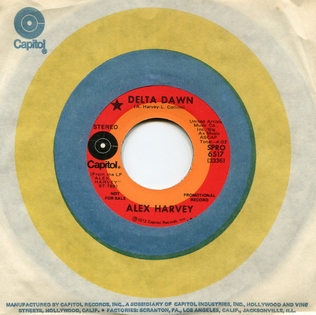
"Delta Dawn" is a song written by musician Larry Collins and country songwriter Alex Harvey. The first notable recording of the song was in 1971 by American singer and actress Bette Midler for her debut album The Divine Miss M. However it is best known as a 1972 top ten country hit for Tanya Tucker and a 1973 US number one hit for Helen Reddy.
"The 'In' Crowd" is a 1964 song written by Billy Page and arranged by his brother Gene and originally performed by Dobie Gray on his album Dobie Gray Sings for "In" Crowders That Go "Go-Go". It appeared on an episode of Dick Clark's Rock, Roll & Remember, featuring in the last week of November 1964, the month Gray's rendition was released.

"It's Only Make Believe" is a song written by drummer Jack Nance and Mississippi-born singer Conway Twitty, while they were touring across Ontario, Canada in 1958. Twitty was a relatively unknown rock n' roll singer at the time, and this song was his first hit, reaching No. 1 on the Billboard chart in November 1958 for two weeks.
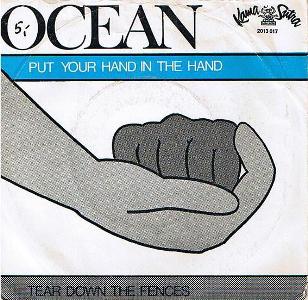
"Put Your Hand in the Hand" is a gospel pop song composed by Gene MacLellan and first recorded by Canadian singer Anne Murray from her third studio album Honey, Wheat and Laughter.

"Love Train" is a hit single by the O'Jays, written by Kenny Gamble and Leon Huff. Released in 1972, it reached No. 1 on both the R&B Singles and the Billboard Hot 100 in February and March 1973 respectively, and No. 9 on the UK Singles Chart and was certified gold by the RIAA. It was the O'Jays' first and only number one record on the US pop chart. The song has been considered one of the first songs of disco music.
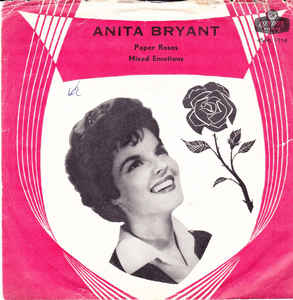
"Paper Roses" is a popular song written and composed by Fred Spielman and Janice Torre. It first was a top five hit in 1960 for Anita Bryant. Marie Osmond recorded it in 1973 and took her version to number one on the US country chart.
"(Now and Then There's) A Fool Such as I" is a popular song written by Bill Trader and published in 1952. Recorded as a single by Hank Snow it peaked at number four on the US country charts early in 1953.
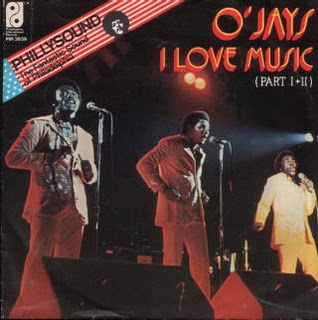
"I Love Music" is a song by American R&B group The O'Jays. It was written by production team Gamble and Huff. The song appeared on The O'Jays 1975 album, Family Reunion. The single reached number five on the US US Billboard Hot 100 and number one on the soul singles chart. In the UK, the song peaked at number 13 in the Top 40 singles charts in March 1976. The single spent eight weeks at number one on the US Disco File Top 20 chart.
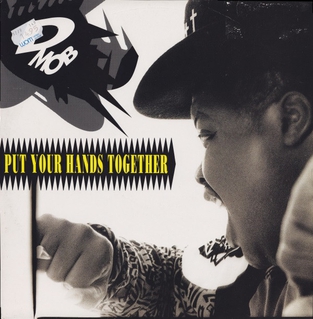
"Put Your Hands Together" is a hip house song by British music producer and remixer D Mob featuring Nuff Juice. Released as the fourth single from his only album, A Little Bit of This, a Little Bit of That (1989), it made the UK top 10, peaking at number seven. The song also reached the top 40 in several other charts across Europe, as well as reaching number 71 in Australia. It heavily samples a song by the O'Jays, though not their 1973 hit of the same name, but their 1983 recording "Put Our Heads Together" from the album When Will I See You Again.
"He'll Have to Go" is an American country and pop hit recorded on October 15, 1959, by Jim Reeves. The song, released in the fall of 1959, went on to become a hit in both genres early in 1960.

"Take Me in Your Arms (Rock Me a Little While)" is a song written by the premier Motown songwriting/production team of the 1960s Holland–Dozier–Holland. The first hit recording was sung by Kim Weston in 1965. It was most popular in 1975 when it was recorded by the Doobie Brothers.
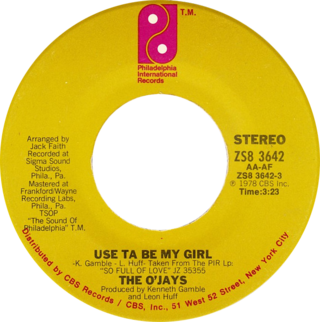
"Use ta Be My Girl" is a song by R&B vocal group The O'Jays. Released from their hit 1978 album, So Full of Love, it became a crossover hit. The song spent five weeks at number one on the R&B singles chart. It also peaked at number four on the Billboard Hot 100 singles chart. "Use ta Be My Girl" became one of the biggest and most familiar hits by The O'Jays. The song has also been certified by the RIAA as a million-seller.
"Now That We Found Love" is a song written by Kenneth Gamble and Leon Huff and originally recorded by American R&B/soul vocal group The O'Jays for their seventh album, Ship Ahoy (1973).

Ship Ahoy is an album by Philadelphia soul group The O'Jays, released in 1973 on Philadelphia International Records. The album was a critical and commercial success, entering Billboard on November 10, and reaching No. 11. It reached No. 1 on the "Black Albums" chart and launched two hit singles, "For the Love of Money" and "Put Your Hands Together." Conceived as a theme album built around the title track, Ship Ahoy includes socially relevant tracks and love songs under a cover that is itself notable for its serious subject matter. The album, which achieved RIAA platinum certification in 1992 for over 1 million copies sold, has been reissued multiple times, including in a 2003 edition with a bonus track. Ship Ahoy was the highest selling R&B album on the Billboard Year-End chart for 1974.
"Share Your Love with Me" is a song written by Alfred Braggs and Deadric Malone. It was originally recorded by blues singer Bobby "Blue" Bland. Over the years, the song has been covered by various artists, most notably Aretha Franklin who won a Grammy Award for her 1969 rendition. Other artists who covered the song include The Band in 1973, Kenny Rogers in 1981, and most recently, Van Morrison in 2016.
"Have You Had Your Love Today" is a new jack swing song by The O'Jays, released as a single in 1989. The song features hip-hop artist Jaz-O, who was an EMI labelmate with the group at the time.

"I'll Be Sweeter Tomorrow (Than I Was Today)" (also known as "I'll Be Sweeter Tomorrow") is a 1967 hit single by the O'Jays, the group's best-selling single on Bell Records.

"You'll Never Get to Heaven (If You Break My Heart)" is a song composed by Burt Bacharach, with lyrics by Hal David. It was originally recorded by Dionne Warwick in 1964, who charted at number 34 in the US Billboard Hot 100 with her version. It was covered by the Stylistics in 1973, who reached number 23 in the US with their cover.
References
- ↑ "The O'Jays – Put Your Hands Together (1973, Vinyl)". Discogs.com. 1973. Retrieved 31 December 2021.
- ↑ Whitburn, Joel (2004). Top R&B/Hip-Hop Singles: 1942-2004. Record Research. p. 438.
- ↑ "Item Display - RPM - Library and Archives Canada". Collectionscanada.gc.ca. 1974-03-09. Retrieved 2022-01-24.